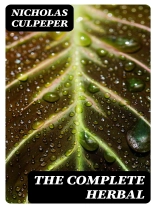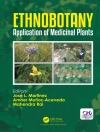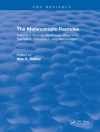Nicholas Culpeper’s ‘The Complete Herbal’ serves as a seminal text in the realm of herbal medicine and its application in the early 17th century. Written in an accessible style, Culpeper’s work synthesizes classical wisdom from ancient herbalists with practical instructions for misusing herbs in the treatment of common ailments. His innovative use of the vernacular language invites a broader audience to engage with herbalism, eschewing the elitist approaches of his contemporaries. This book not only catalogues an extensive array of plants and their medicinal properties but also is embedded within the context of burgeoning interest in natural remedies, countering the increasingly commercial interests of established medical practitioners of the time. Culpeper, a self-taught herbalist and astrologer, was born into a tumultuous era marked by political strife and social transformation that shaped his disdain for conventional medicine. His personal experiences with illness and his quest for empirical knowledge led him to cultivate a deep understanding of plants and their healing properties. Culpeper’s background in astrology intertwined with his herbal practices provided an innovative framework to approach healing as an interconnected art, thus enhancing the epistemology of medicine during the early modern period. I highly recommend ‘The Complete Herbal’ to anyone interested in the intricate relationship between nature and health, as well as the historical evolution of herbalist practices. Whether you are a medicinal practitioner, a history enthusiast, or a curious layperson, Culpeper’s enlightening perspectives on botany and healing offer a timeless resource that resonates with ongoing discussions about natural medicine today.
लेखक के बारे में
Nicholas Culpeper (1616-1654), was an English botanist, herbalist, physician, and astrologer. His lasting legacy is the seminal book ‘The Complete Herbal’ (1653), which provided an extensive catalogue of English flora and their uses in herbal medicine. Culpeper’s work deviated from the cryptic methods of his time; he insisted on using English rather than Latin, which made his treatments and the knowledge of herbs accessible to the common people. Born in Ockley, Surrey, Culpeper was educated at Cambridge but left to apprentice with an apothecary. Later, moving to London, he began practicing medicine without the license from The College of Physicians, which made him a radical figure in the 17th century. His own medical practice and the publication of ‘The English Physician’ (another name for ‘The Complete Herbal’) offered the common folk an alternative to the expensive and often inaccessible services of trained physicians. The book includes a comprehensive account of each herb’s description, place of growth, time of collection, and medical virtues. Culpeper’s close ties to the natural world and astrological influences on medicine and healing earned him substantial popularity, but also the ire of professional peers. Regardless, his work remains an influential piece of literature in herbalism and an early example of the democratization of healthcare knowledge.












